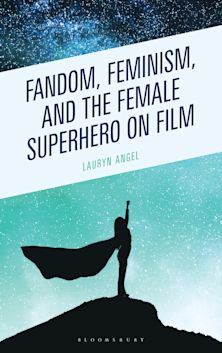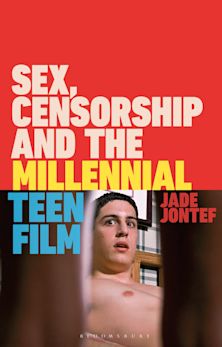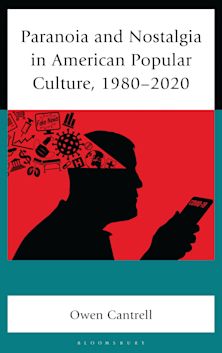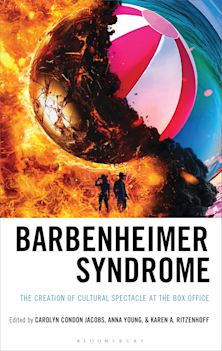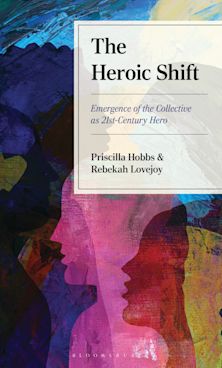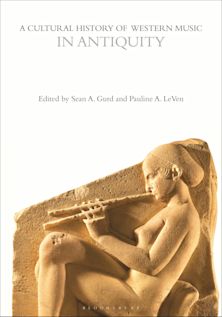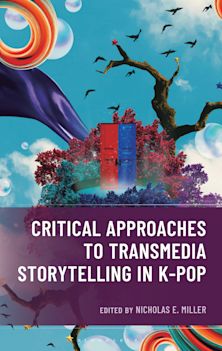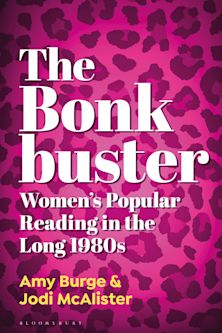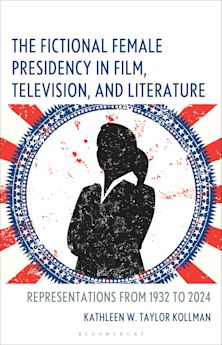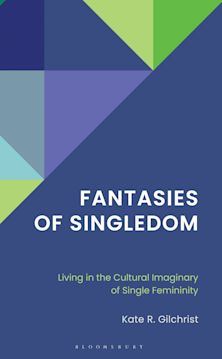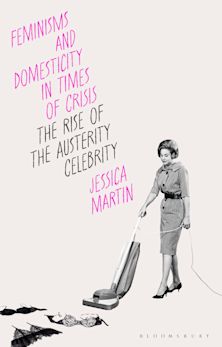- Home
- ACADEMIC
- Film & Media
- Popular Culture
- Concise Dictionary of Popular Culture
Concise Dictionary of Popular Culture
This product is usually dispatched within 1 week
- Delivery and returns info
-
Free CA delivery on orders $40 or over
You must sign in to add this item to your wishlist. Please sign in or create an account
Description
The Concise Dictionary of Popular Culture covers the theories, media forms, fads, celebrities and icons, genres, and terms of popular culture. From Afropop and Anime to Oprah Winfrey and the X-Files, the book provides more than just accessible definitions. Each of the more than 800 entries is cross-referenced with other entries to highlight points of connection, a thematic index allows readers to see common elements between disparate ideas, and more than 70 black and white photos bring entries to life.
Product details
| Published | Dec 15 2016 |
|---|---|
| Format | Hardback |
| Edition | 1st |
| Extent | 338 |
| ISBN | 9781442253117 |
| Imprint | Rowman & Littlefield Publishers |
| Illustrations | 10 BW Illustrations, 63 BW Photos |
| Dimensions | 263 x 182 mm |
| Publisher | Bloomsbury Publishing |
About the contributors
Reviews
-
Published widely in the areas of semiotics, media, and linguistics, Danesi is author of Encyclopedia of Media and Communication and a textbook, Popular Culture: Introductory Perspectives. He wrote the more than 800 entries in this new dictionary, focusing on mainstream (namely commercialized) aspects of popular culture in the US, past and present. Subjects range from media formats and genres (e.g., baseball cards, anime) to significant influencers of US pop culture (musician Bob Marley, film director Alfred Hitchcock, author J. K. Rowling). Some entries relate to specific products, such as the television show American Idol, or provide concise explications of media-studies terminology, such as high and low culture or infomercial. Included as appendixes are finding aids organizing entries into broad themes (e.g., cartoon characters or textspeak) or various helpful time lines. This compilation is probably most useful for those in introductory-level media studies programs….
Summing Up: Recommended. High school through beginning undergraduate students; general readers.Choice Reviews
-
As a quick-reference resource, The Concise Dictionary of Popular Culture delivers. . . .Public libraries looking to add to their quick-reference collections would benefit from such a title.
American Reference Books Annual
-
Recognized nationally and internationally for his scholarship on popular culture, Marcel Danesi has written a book that provides scholars, students, and the general public with a comprehensive and comprehensible reference work on all aspects of popular culture. The Concise Dictionary of Popular Culture is an indispensable resource that belongs in everyone’s personal library.
Frank Nuessel, University of Louisville
-
Covering everything from ABBA and absurdism to Zizek and zombie movies, Marcel Danesi’s Concise Dictionary of Popular Culture is a reference book that is both comprehensive and authoritative. It includes seventeen appendices on topics such as superheroes, ad campaigns, and James Bond movies. Beautifully written and encyclopedic in scope, it is a must-have resource for popular culture scholars and fans.
Arthur Asa Berger, professor emeritus, San Francisco State University
-
Marcel Danesi’s Concise Dictionary of Popular Culture is an immense achievement. It manages the unmanageable, surveying a field that expands too rapidly for a comprehensive check on it to be possible. By way of more than eight hundred informative entries, supplemented by seventeen judiciously selected appendices, Danesi ingeniously encapsulates Western popular culture, allowing students and the general reader alike to get to grips with popular cultural forms, academic approaches, and the history of investigation in the field. Students will find this volume indispensable, but so too will academic specialists and those who consider themselves to be popular culture ‘natives.’
Paul Cobley, Middlesex University
-
This unique dictionary provides a thorough stroll through the diverse landscape of popular culture. It focuses on significant references to contemporary theories and on practices of cultural phenomena, clearly articulating terms and ideas that mark this significant part of our lives. It will be useful for undergraduates, graduate students, and colleagues who often wonder about the meanings of terms including meme, metanarrative, millennial; pastiche, patriarchy, payola; selfie, semiotics, and simulacrum, among many others. A handy reference dictionary such as this one that leads readers from one idea to another will be a welcome addition to many course reading lists and home libraries.
Deborah L. Smith-Shank, Ohio State University, president of the Semiotic Society of America












